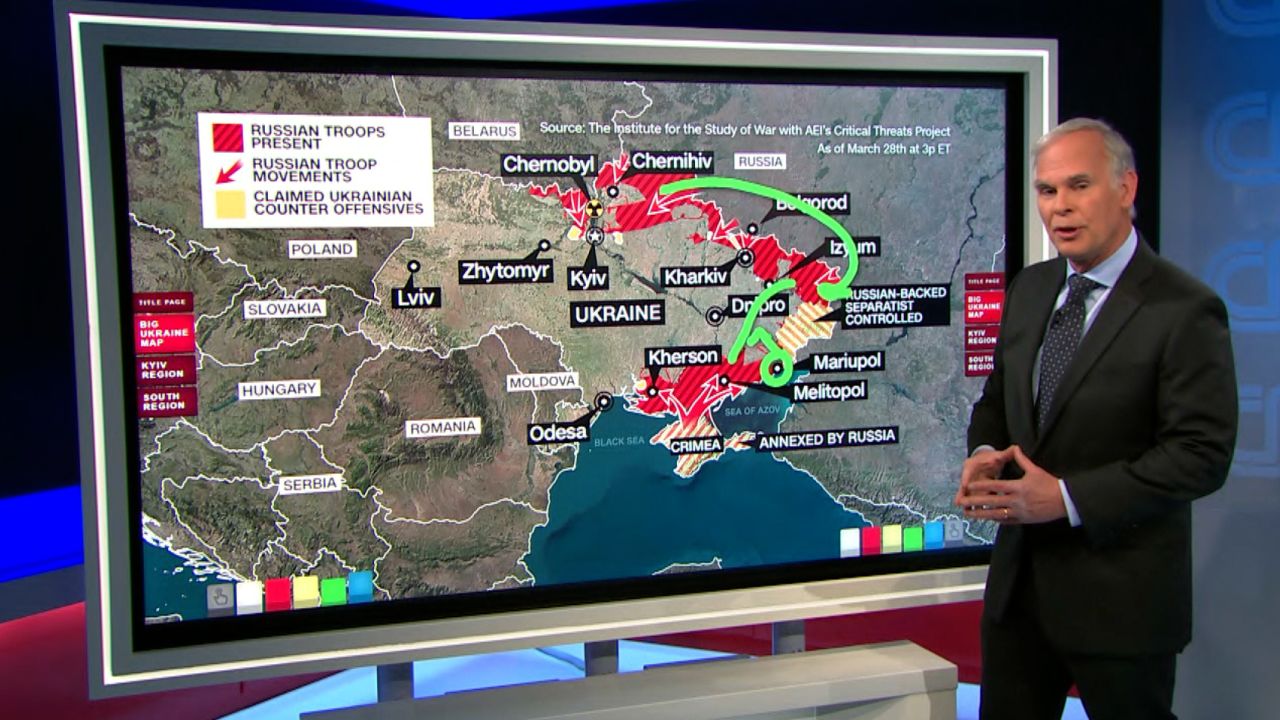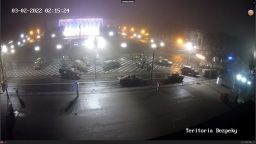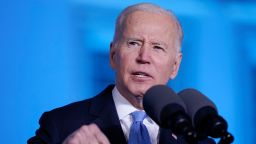When the Russian and Ukrainian foreign ministers met in Turkey just 19 days ago, the atmosphere was toxic — and neither side got far beyond restating existing positions.
Today, at a meeting in Istanbul between Russian and Ukrainian teams, the atmospherics were a great deal more positive and the outlines, however faint, of an overall settlement to this horrendously destructive war, began to come into focus.
They included the future of Crimea and the Donbas region, Ukraine’s neutral status, protected by security guarantees, a notable pull-back of Russian forces currently north of Kyiv and even the prospect of a meeting between Presidents Vladimir Putin and Volodymyr Zelensky.
The Ukrainian side accepted kicking into the long grass the status of Crimea, which Russia annexed in 2014.
Mykhailo Podolyak, an adviser to Zelensky, said of the future of Crimea, whose annexation has never been accepted by either Ukraine or other Western countries: “It was agreed in bilateral format to take a pause for 15 years and conduct bilateral talks on the status of these territories.
“Separately we discussed that during the 15 years while the bilateral talks take place there will be no military hostilities,” he told reporters.
This would take one of the most contentious issues off the table for now.
Both sides seemed to be in a constructive mood. Podolyak said the Russian negotiators have “taken the treaty that outlines ways to end the war and will work out their counter proposals.”
Russian news agency TASS quoted the head of the Russian delegation, Vladimir Medinsky, as saying that the talks were constructive. And he said that “Russia is taking two steps towards Ukraine for de-escalation.”
The most immediate of those is the Russian declaration that hostilities against Chernihiv and in the direction of the Ukrainian capital, Kyiv, would be drastically reduced. Chernihiv, in northern Ukraine, has been surrounded by Russian forces and has suffered devastating destruction over the past three weeks.
As significantly, Medinsky said that the Ukrainian proposals were now sufficiently formulated for them to “be presented to the President. And our appropriate response will be given.”
“Provided that the agreement is worked on quickly and a compromise is found, the opportunity to conclude peace will become closer,” Medinsky said — the most upbeat assessment from a Russian official since the first round of talks at the end of February.
Russian officials have previously played down any involvement in the process of Putin, saying that more needed to be negotiated before the Russian leader personally sits down for direct talks.
Now, Russian state news agency RIA Novosti — citing the Russian delegation — spoke of the possibility of a meeting between Putin and Zelensky simultaneously with the initialing of the peace treaty by the foreign ministers of both countries.
Turkish Foreign Minister, Mevlüt Çavuşoğlu, who brokered the talks, sketched out a possible roadmap, with the “top priority of achieving a ceasefire as soon as possible to pave the way for a permanent political solution.”
Those “trickier” issues would be bumped up to the Russian and Ukrainian foreign ministers to “make final adjustments to the common approach.” And then a meeting between Putin and Zelensky would be on the agenda, he said in remarks to reporters after the talks.
An outline emerges: For Ukraine, security guarantees have always been a critical part of any settlement to the conflict. Gradually, President Zelensky and other Ukrainian officials have walked away from Ukraine’s past insistence that it has the right — even the obligation — to apply for NATO membership, as is enshrined in the Ukrainian constitution.
Now a very different formulation is emerging.
One member of the Ukrainian team, Davyd Arakhamia, said after the meeting to Ukrainian TV: “We insist that this be an international treaty, signing all the guarantors of security, which will be ratified.”
That treaty would have to be ratified by parliaments in the guarantor countries, according to Ukrainian officials, who are evidently building as much insurance into the mechanism as possible. The Ukrainians also want the guarantors to include the permanent members of the UN Security Council — Russia included.
The guarantees would be very specific, Arakhamia said. In the event of aggression or a military operation directed at Ukraine, “consultations should take place within three days.”
“After that, the guarantor countries are obliged to help us. And military aid, and the armed forces, and weapons, and the closed sky — everything that we need so much now, and we cannot get it.”
The Ukrainians are now looking at what might be called protected — and permanent — neutrality.
Read more here.









